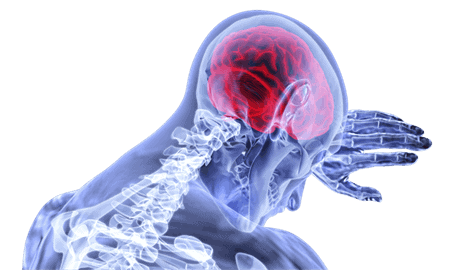High blood pressure appears to accelerate cognitive decline among middle-aged and older adults and treating high blood pressure may slow down the process, according to a preliminary research presented at the American Heart Association’s Hypertension 2019 Scientific Sessions.
The findings are important because high blood pressure and cognitive decline are two of the most common conditions associated with aging, and more people are living longer worldwide.
According to the American Heart Association’s 2017 Hypertension Guidelines, high blood pressure is a global health threat, affecting approximately 80 million U.S. adults and one billion people globally. Moreover, the relationship between brain health and high blood pressure is a growing interest as researchers examine how elevated blood pressure affects the brain’s blood vessels, which in turn, may impact memory, language and thinking skills.
In this observational study, researchers from Columbia University analyzed data collected on nearly 11,000 adults from the China Health and Retirement Longitudinal Study (CHARLS) between 2011-2015, to assess how high blood pressure and its treatment may influence cognitive decline. High blood pressure was defined as having a systolic blood pressure of 140 mmHg or higher and a diastolic blood pressure of 90 mmHg or higher, and/or taking antihypertensive medications. (Note: The American Heart Association guidelines define high blood pressure as 130 mmHg or higher or a diastolic reading of 80 mmHg or higher.)
Researchers in China interviewed study participants at home about their high blood pressure treatment, education level and noted if they lived in a rural or urban environment. They were also asked to perform cognitive tests, such as immediately recalling words as part of a memory quiz.
Among the study’s findings:
Overall cognition scores declined over the four-year study;
Participants ages 55 and older who had high blood pressure showed a more rapid rate of cognitive decline compared with participants who were being treated for high blood pressure and those who did not have high blood pressure; and
The rate of cognitive decline was similar between those receiving high blood pressure treatment and those who did not have high blood pressure.
The study did not evaluate why or how high blood pressure treatments may have contributed to slower cognitive decline or if some treatments were more effective than others.
“We think efforts should be made to expand high blood pressure screenings, especially for at-risk populations, because so many people are not aware that they have high blood pressure that should be treated,” said presenting study author Shumin Rui, a biostatistician at the Mailman School of Public Health, Columbia University in New York. “This study focused on middle-aged and older adults in China, however, we believe our results could apply to populations elsewhere as well. We need to better understand how high blood pressure treatments may protect against cognitive decline and look at how high blood pressure and cognitive decline are occurring together.”
###


